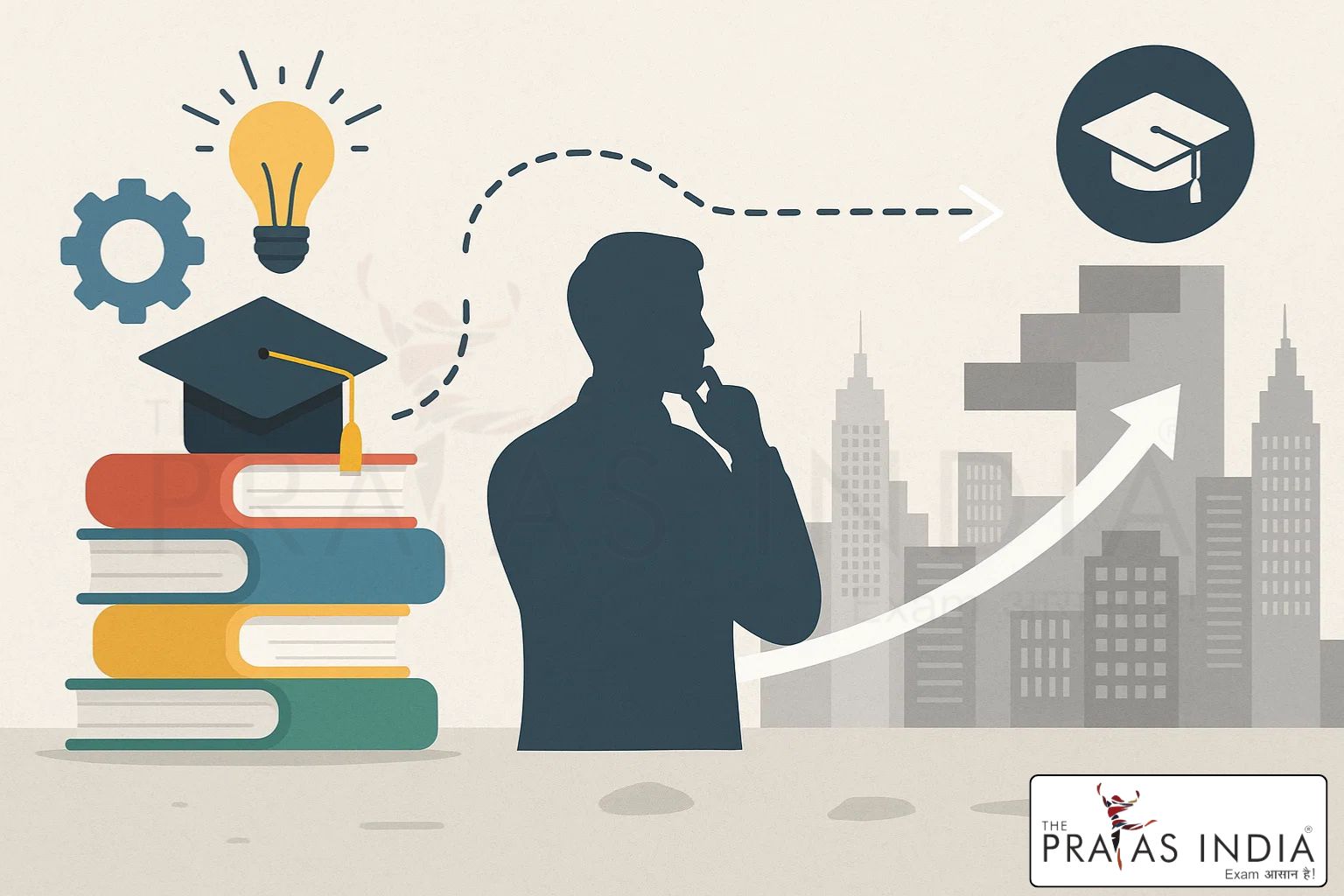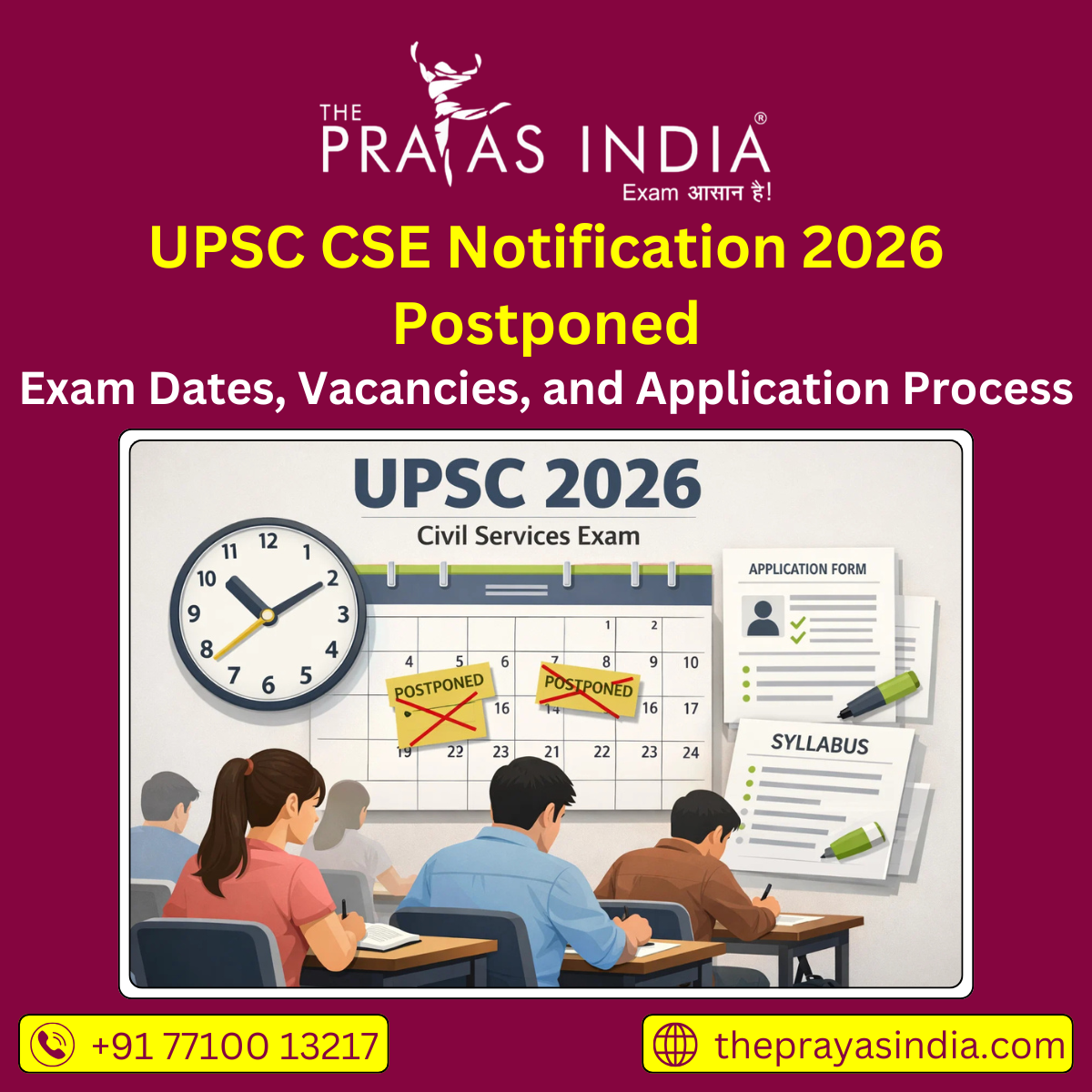National Education Policy 2020: Five Years Later – Impact, Gaps & the Road Ahead
The National Education Policy (NEP) 2020 was launched with a vision to transform India’s education system into a modern, inclusive, and learner-centric framework. Five years into its implementation, the NEP is beginning to leave its mark across various stages of learning—from foundational schooling to higher education, skill development, and even competitive exam preparation.
At The Prayas India, widely acknowledged as the Best UPSC Coaching in Mumbai, we examine how the policy has evolved, what challenges remain, and how aspirants preparing for UPSC and other competitive exams can align their learning with this new educational landscape.

Key Reforms Introduced Under NEP 2020
NEP 2020 replaced the traditional 10+2 structure with a more flexible 5+3+3+4 system, aiming to foster early childhood education, creative thinking, and strong foundational literacy and numeracy. The policy introduced major shifts such as:
-
Multidisciplinary and flexible undergraduate education
-
Emphasis on conceptual understanding and reduction of rote learning
-
Vocational education from Grade 6 onwards
-
Integration of technology through the National Educational Technology Forum (NETF)
-
Common entrance exams for college admissions through CUET
-
Focus on regional languages and mother tongue in early education
These changes were intended to develop learners who are analytical, creative, and ready for real-world challenges.
Higher Education: Greater Flexibility and Choice
One of the most impactful changes has been the shift in higher education. By 2025, universities have increasingly adopted Academic Bank of Credits (ABC), allowing students to pause, switch, or resume their academic journey across institutions and disciplines. The focus on multidisciplinary education has created opportunities for UPSC aspirants to explore optional subjects, ethics, and social sciences in greater depth.
Autonomy for top-rated institutions, restructuring of regulatory bodies, and introduction of the National Research Foundation (NRF) have pushed higher education in India toward a more research-oriented and globally competitive model. This also complements the demands of UPSC preparation, where comprehensive understanding and analytical thinking are essential.
Skill Development: From Theory to Application
NEP 2020 has made skill development an integral part of school and higher education. Vocational subjects, coding, financial literacy, and digital skills are now included in many school boards and universities. This shift is particularly important for students aiming for government exams, as many of these skills are now tested in CSAT, RBI, SEBI, and other examinations.
Students are encouraged to work on real-life projects and problem-solving assignments. This enhances not only employability but also prepares aspirants for application-based questions, case studies, and essays in civil services examinations.
Exam Reforms and Pedagogical Transformation
The Common University Entrance Test (CUET) introduced a national-level standard for admissions to undergraduate programs. As a result, coaching and test preparation methods have also adapted, emphasizing logical reasoning, reading comprehension, and data interpretation—skills that are also relevant for UPSC and other competitive exams.
In addition, state boards and State Public Service Commissions have started aligning their exam frameworks to include more analytical and less memorization-based content. For aspirants, the shift means preparing beyond textbooks, focusing on understanding issues, debating perspectives, and developing well-rounded viewpoints.
Institutions like The Prayas India, known as the Best UPSC Coaching in Mumbai, are leading this change by offering a curriculum that mirrors this transformation, emphasising clarity in concepts, multidimensional coverage of topics, and real-life applications of theoretical learning.
Challenges in Implementation
Despite its ambitious goals, NEP 2020 faces several challenges on the ground:
-
Implementation remains uneven across states due to differences in policy readiness and infrastructure.
-
There is a shortage of trained teachers to implement new teaching methodologies effectively.
-
The digital divide continues to restrict access for rural and underprivileged students.
-
Language policy and medium of instruction debates have stirred regional and ideological concerns.
-
Monitoring and quality assurance systems for private and public institutions remain weak.
While the policy is strong on vision, its execution demands systemic overhaul, sustained investment, and political will across the central and state governments.
The Road Ahead
The success of NEP 2020 over the next five years will depend on its ability to ensure inclusion, bridge learning gaps, and prepare students not just for jobs, but for life. For UPSC aspirants, this means embracing an interdisciplinary and reflective approach to learning.
Some of the necessary steps include:
-
Strengthening teacher education and in-service training under the National Mission for Mentoring
-
Leveraging public-private partnerships for resource development and innovation
-
Accelerating digital infrastructure projects like BharatNet to ensure last-mile connectivity
-
Promoting inclusivity in curriculum and pedagogy, especially for marginalised communities
How The Prayas India Aligns with NEP’s Vision
At The Prayas India, we have integrated NEP-aligned principles into our UPSC coaching programs. Our teaching methodology:
-
Prioritises analytical learning, ethical reasoning, and interlinked subject understanding
-
Encourages digital fluency and use of current affairs across GS papers
-
Offers flexibility in optional subject preparation and current trends in governance, technology, and social development
By focusing on the holistic development of a learner, The Prayas India, widely regarded as the Best UPSC Coaching in Mumbai, prepares aspirants not only to clear exams but to emerge as future policymakers and administrators who understand the larger context of education, economy, and society.
Conclusion
The National Education Policy 2020 marks a foundational shift in India’s education narrative. As it completes five years in 2025, the policy stands at a critical juncture—progressing in vision but still facing execution hurdles. For aspirants and educators alike, it is an opportunity to redefine how learning is approached, especially in the context of civil services preparation.
As India’s education system becomes more learner-centric, inclusive, and skill-oriented, aspirants at The Prayas India are empowered to think critically, prepare smartly, and serve effectively.




![Prayas-तेजस [UPSC CSE Sociology Optional] – Online & Offline](https://theprayasindia.com/wp-content/uploads/2025/09/Prayas-तेजस-UPSC-CSE-Optional-Subject-The-Prayas-India-300x300.png)
![Prayas-सूत्र [UPSC CSE Materials (Hardcopy)]](https://theprayasindia.com/wp-content/uploads/2025/09/Prayas-सूत्र-UPSC-CSE-Study-Materials-Hardcopy-The-Prayas-India-300x300.png)
![Prayas-मंत्रा [UPSC CSE CSAT]](https://theprayasindia.com/wp-content/uploads/2025/09/Prayas-मंत्रा-UPSC-CSE-CSAT-The-Prayas-India-300x300.png)
![Prayas सारथी [UPSC CSE One on One Mentorship]](https://theprayasindia.com/wp-content/uploads/2025/09/Prayas-सारथी-UPSC-CSE-One-on-One-Mentorship-The-Prayas-India-300x300.png)










